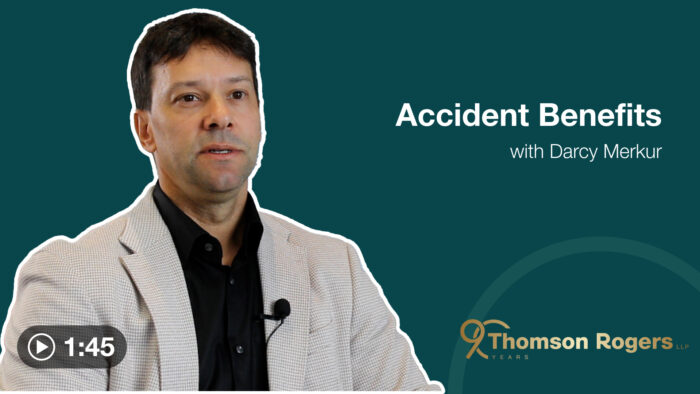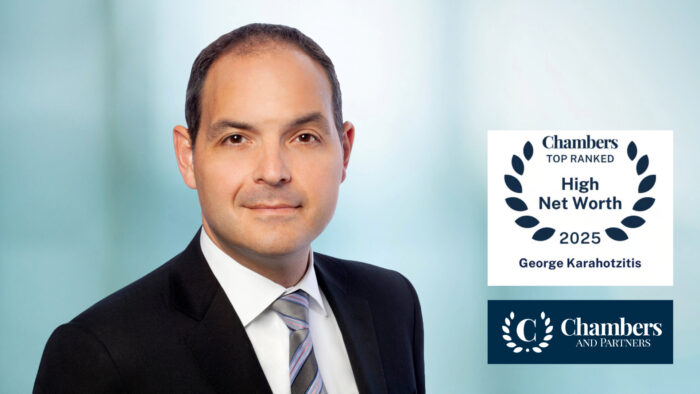Challenges with Opinions from Treatment Providers
Author(s): Darcy R. Merkur
October 22, 2013
All treatment providers must now strictly comply with expert report rules before being able to provide opinion evidence at trial.
While obtaining compliant expert reports from treating health practitioners seems like an easy task, it is not always so, especially when dealing with publically funded providers unaccustomed to writing medical-legal reports and uncomfortable charging fees for doing so.
Until recently, there has been conflicting caselaw on whether the onerous expert report rules applied beyond medical-legal experts hired by a party to the litigation. The Ontario Superior Court in Beasley v. Barrand [2010] CarswellOnt 2172 (S.C.J.), had taken a strict compliance approach to the need for formal expert reports, while a more flexible approach to opinions by non-retained experts was taken by the Ontario Superior Court in McNeil v. Filthaut, 2011 ONSC 2165 (CanLII).
But on June 20th, the Ontario Division Court in Westerhof v. Gee (Estate), 2013 ONSC 2093, concluded that the expert report rules apply to all opinion evidence regardless of the person’s role or involvement in the case.
In Westerhof v. Gee (Estate), 2013 ONSC 2093, following a modest jury verdict, the trial judge dismissed the plaintiff’s motor vehicle injury claim on the basis that the plaintiff’s injuries did not meet the requisite threshold of being both permanent and serious. The plaintiff appealed primarily arguing that the trial judge erred in restricting the evidence of various treatment providers.
In Westerhof, the trial judge precluded opinion evidence from the treating family doctor, the treating chiropractor and a treating driving counsellor on the basis that they did not provide a report in accordance with Rule 53.03 of the Ontario Rules of Civil Procedure. The appellant argued that the treating experts’ evidence should be treated differently than the evidence of experts retained for the purposes of the litigation
On appeal, the Divisional Court agreed with the trial judge’s approach on all issues.
The Court starts off by reviewing the two key expert Rules, Rule 53.03 and Rule 4.1.01. The Court comments that Rule 4.1.01 highlights the duty of an expert “engaged by or on behalf of a party” to provide objective opinion evidence within their area of expertise while Rule 53.03 requires a party calling an expert witness at trial to serve a report well before trial that addresses fundamental issues associated with the opinion sought and provided, and imposes an obligation on the expert to sign an expert’s duty form confirming the expert’s over-arching duty to the Court as opposed to the party that retained them.
In Westerhof, Justice Thomas Lederer writing for the Ontario Divisional Court, makes it clear that all those providing opinion evidence are bound by the Rules regardless of how they became involved. He states (at paragraph 21):
“The important distinction is not in the role or involvement of the witness, but in the type of evidence sought to be admitted. If it is opinion evidence, compliance with rule 53.03 is required; if it is factual evidence, it is not.”
Justice Lederer goes on to explain that opinion evidence will only be admitted where there has been compliance with Rule 53. He states (at paragraph 22):
“….where the report relied on to advance the opinion does not comply with rule 53.03, it is correct for the trial judge to refuse to admit the evidence.”
The Division Court in Westerhof reviews the varying approaches to expert evidence in Beasley and McNeil, and expresses its preference for the Beasleyapproach of stricter compliance.
In addressing the issue of whether treatment providers should be treated differently than experts hired in the course of litigation, Justice Lederer comments that treatment providers should not be treated differently. He states (at paragraph 27):
“In determining whether and how rule 53.03 is to be applied, there is no basis for distinguishing between witnesses who treated the plaintiff and those who were retained solely to provide an opinion at trial. Rule 53.03 has to be applied taking into account the nature of the evidence to be called. Is it factual or opinion evidence?”
It should be noted that the Westerhof decision in no way interferes with the right of a treatment provider to discuss their factual observations of the plaintiff and their description of the treatment provided. If a treatment provider is called to provide this evidence they do not need to be qualified nor treated as an expert.
By crystalizing the rule requiring compliant expert reports in all circumstances, plaintiff’s personal injury lawyers are now faced with additional pressure to secure compliant reports from the key treatment providers. But, regrettably, many important treatment providers, typically publically funded physicians like family doctors, orthopedic specialists, psychiatrists and physiatrists, are resistant and unwilling to write comprehensive and compliant expert reports for various personal reasons. Moreover, their opinions are typically widely known as they are expressed throughout their treatment reports, such that their opinion evidence, if allowed, would come as no surprise.
While the new expert report rules were intended to reduce reliance on hired guns, the Westerhof decision will have the unfortunate effect of forcing plaintiff’s counsel to become even more reliant on medical-legal experts out of fear that they will not be able to later secure compliant reports from the key treatment providers.
View PDF version: ABR Updater | Issue 15 | October 2013
Darcy Merkur is a partner at Thomson Rogers in Toronto practicing plaintiff’s personal injury litigation, including plaintiff’s motor vehicle litigation. Darcy has been certified as a specialist in Civil Litigation by the Law Society of Ontario and is the creator of the Personal Injury Damages Calculator.
Share this






